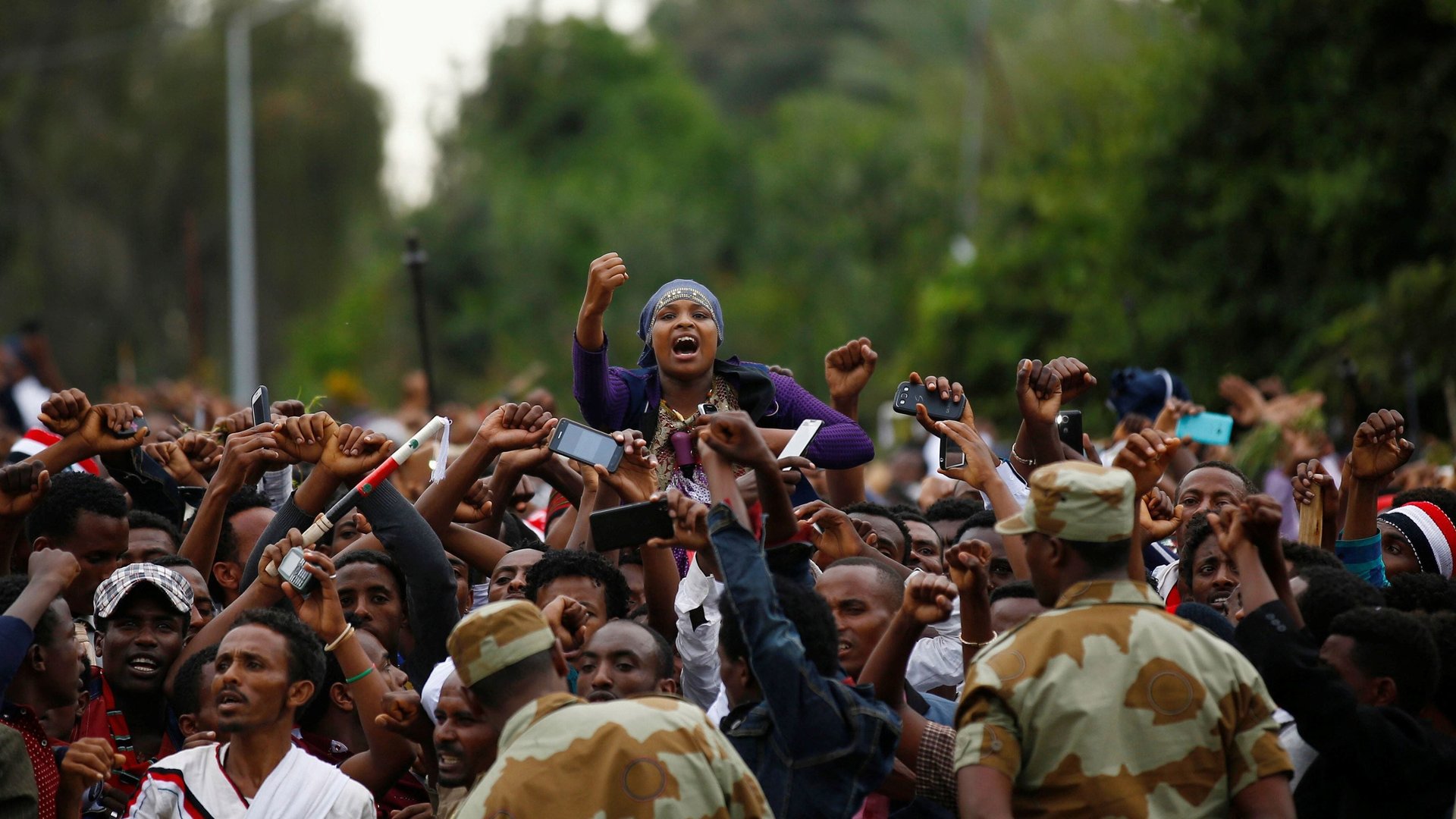Ethiopia’s ruling coalition has elected its first ethnic Oromo to lead the country
Ethiopia’s ruling coalition has picked Abiy Ahmed as its new chairman, paving the way for him to become the country’s next prime minister.


Ethiopia’s ruling coalition has picked Abiy Ahmed as its new chairman, paving the way for him to become the country’s next prime minister.
The state-affiliated FANA channel said the Ethiopian People’s Revolutionary Democratic Front elected Abiy as its new leader, replacing Hailemariam Desalegn who resigned last month. Media sources reported that Abiy secured 108 votes among the 180-member council which has ruled the country since 1991.
For weeks now, there was speculation Abiy, 41, will be elected as successor to Hailemariam. His rise is also practical, given that he’s the head of the Oromo ethnic party within the ruling EPRDF coalition. As the country’s largest community, the Oromos have for over two years now protested against the Tigray-dominated government, demanding land reform, full political participation, and an end to human rights abuses in the country.
Authorities reacted with force to the demonstrations, repeatedly shutting down the internet, banning the use of social media networks to document the unrest, and admitted to the death of 669 people. Officials also declared two state of emergencies, one of which is currently ongoing.
Abiy now faces the challenges of not only strengthening the party but also introducing widespread reforms that many people have died fighting for in his own Oromia state. Hailemariam’s government had already started doing that, releasing political prisoners and prominent journalists and promising to close the much-maligned Maekelawi detention center. Yet just this week, some of those journalists were arrested again, with authorities not disclosing any charges against them, according to the Committee to Protect Journalists. The violence in Oromia region is still flaring too, with almost 10,000 people fleeing into the border town of Moyale in Kenya in recent days.
By fronting Abiy Ahmed, the EPRDF hopes its historic move of electing the first Oromo to lead the coalition will save it from disintegrating and act as a salve for protesters. Analysts say Abiy has a close relationship with both Oromo youth and the country’s political and security agencies. Some have also touted his mixed religious background—he has a Christian mother and a Muslim father—his education, and his fluency in Amharic, Oromo, and Tigrinya as making him qualified for the job.
Other observers note his time as a government insider and cast doubt on whether he will eventually bring meaningful change. Abiy was the founder of the Information Network Security Agency, a government outfit responsible for collecting and monitoring signals intelligence, including among the dissident diaspora population. He was also a lieutenant colonel in the army and served as minister of science and technology.
“For those looking for meaningful change, Abiy’s experience and record may be as much of a disadvantage as an advantage,” wrote Mohammed Ademo, the founder of the Oromo-focused website OPride.